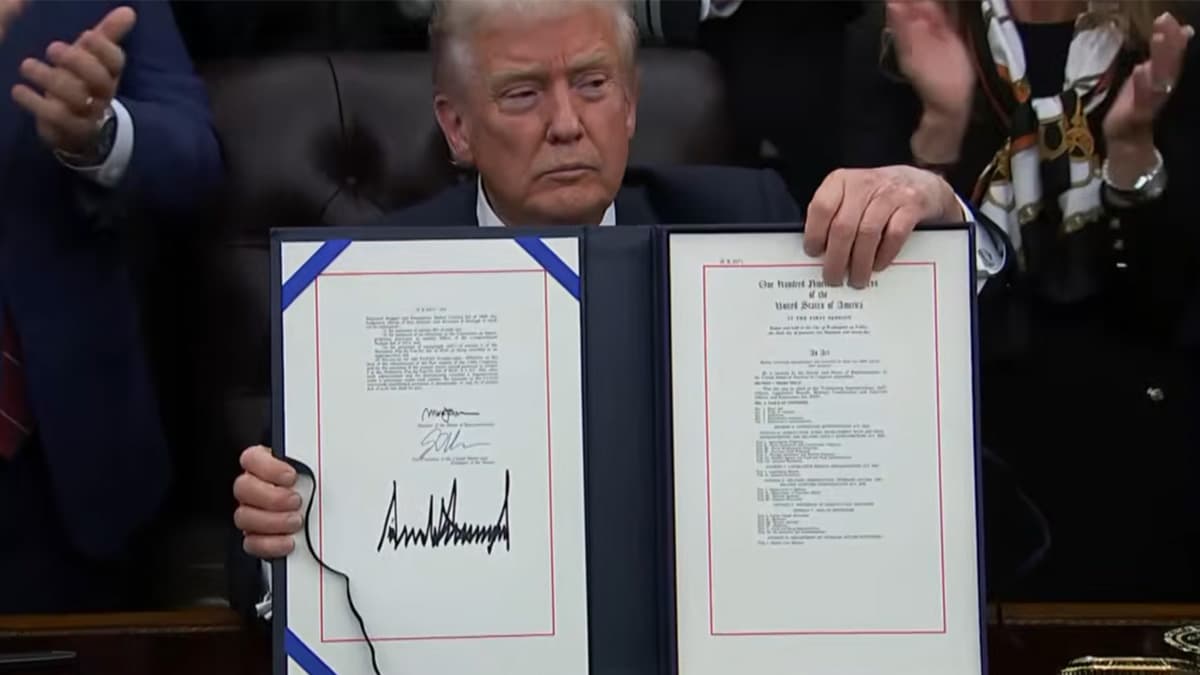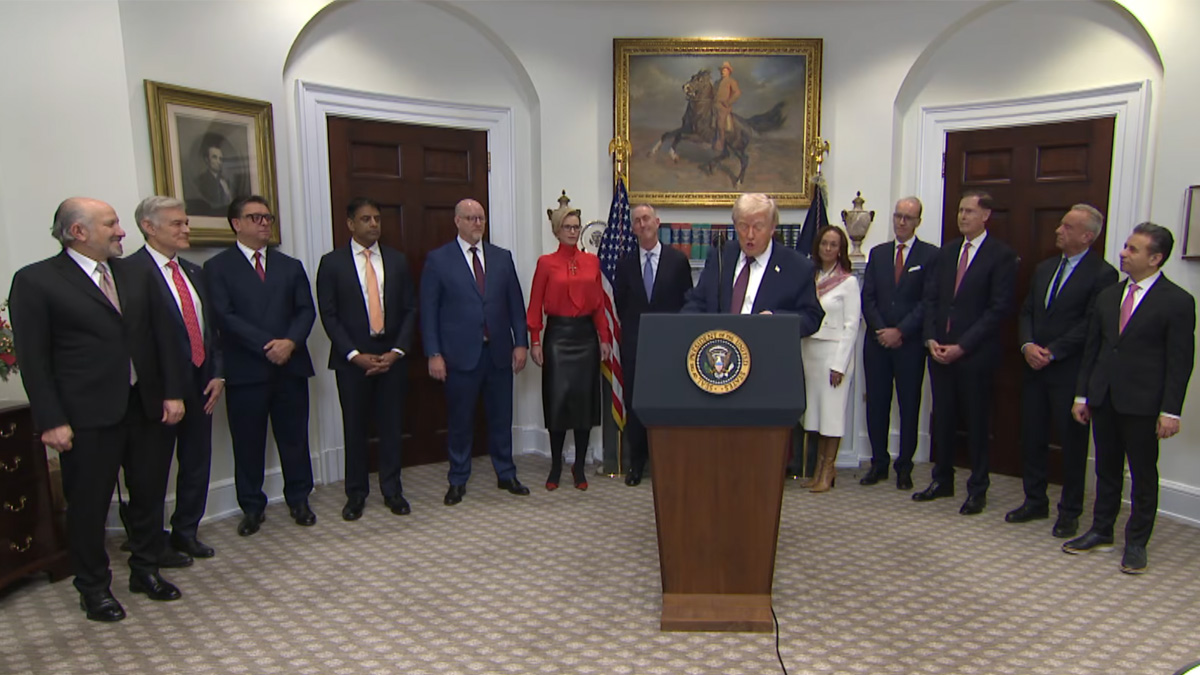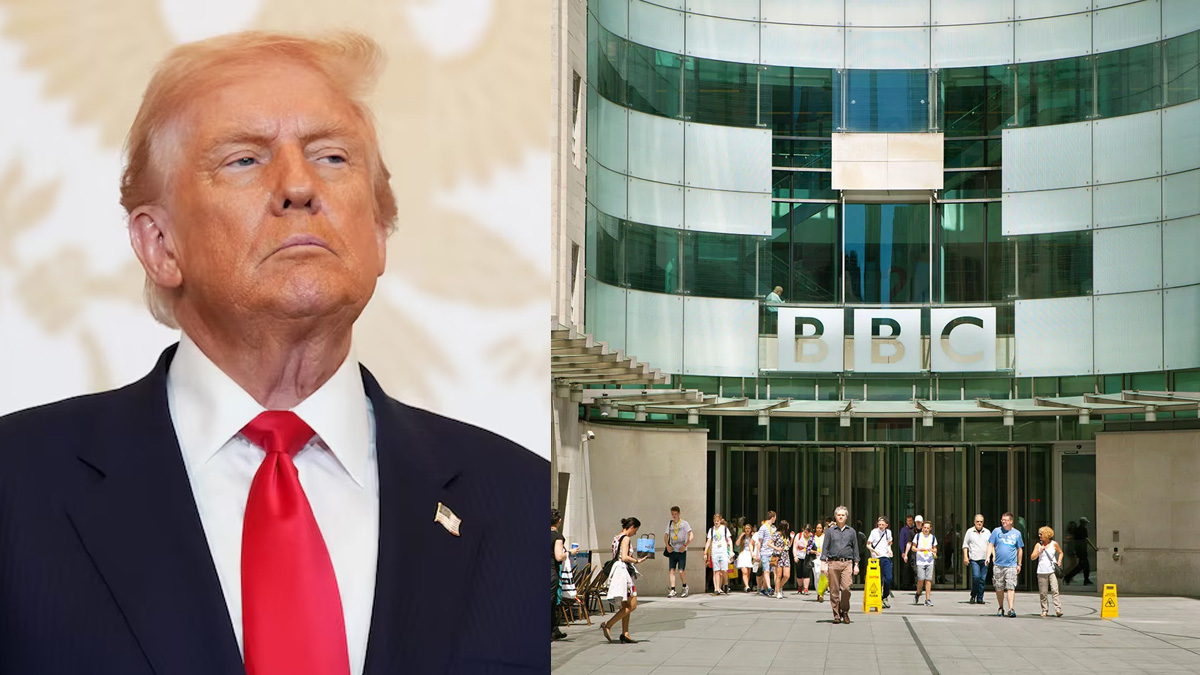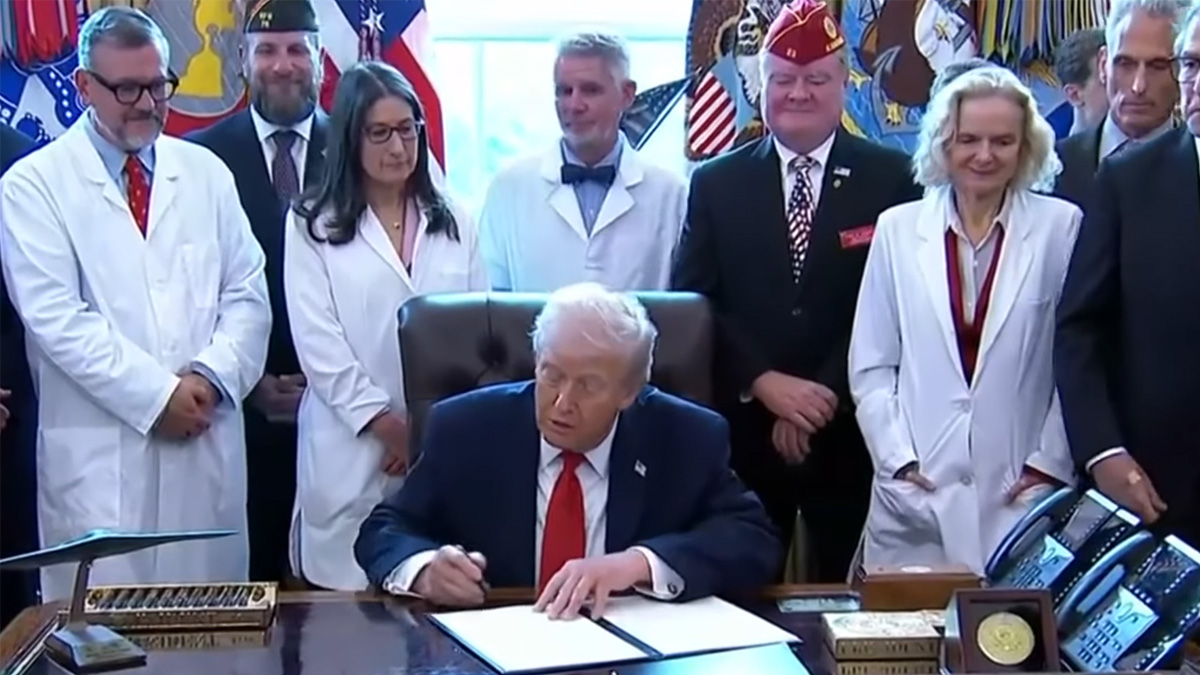Trump signs funding bill to end 43-day government shutdown, longest in US history
US President Donald Trump signed a bill to end the 43-day federal shutdown, the longest in US history, following bipartisan support in Congress but without meeting Democratic demands for ACA subsidy extensions. The shutdown caused widespread disruption to services and federal worker livelihoods.

- US President Donald Trump has signed a funding bill to end the 43-day federal government shutdown.
- The shutdown, the longest in US history, caused widespread disruption and political tension.
- The bill funds major agencies but excludes ACA subsidy extensions, sparking further policy disputes.
UNITED STATES — President Donald Trump signed a government funding bill on Wednesday, officially ending the 43-day federal shutdown — the longest in US history. The shutdown had disrupted government operations, delayed wages for federal workers, and strained services across the country.
Speaking in the Oval Office while surrounded by Republican lawmakers, Trump declared, “Today we are sending a clear message that we will never give in to extortion, because that’s what it was.”
Present at the signing were House Speaker Mike Johnson, Majority Leader Steve Scalise, House Republican Conference Chair Lisa McClain, Republican donor Ken Griffin, and Chris Sununu, the former governor of New Hampshire now leading an airline lobbying group.
Congressional vote clears path to restore government operations
The legislation passed the Senate earlier in the week with a 60–40 vote. Eight Democrats joined Republicans to reach the threshold. The House then passed the measure 222–209 on Wednesday, with six Democrats joining nearly all Republicans in support.
The bill funds the Department of Agriculture, military construction, veterans’ affairs, and the legislative branch through 30 September. Other agencies are funded through 30 January.
It also reverses federal layoffs ordered during the shutdown and guarantees back pay for affected employees. The White House had previously moved to lay off thousands and reduce airport operations due to air traffic controller shortages.
Healthcare subsidies left out of deal
Despite efforts by Democratic lawmakers, the bill does not include an extension of enhanced Affordable Care Act (ACA) tax credits, which are set to expire in January. Democrats had pushed for this extension to prevent sharp increases in health insurance premiums.
House Democratic leader Hakeem Jeffries warned that the omission would affect millions of Americans.
“This fight is not over,” he said, vowing continued efforts to reinstate the subsidy.
The Congressional Budget Office has projected that, without the credits, more than 2 million people could lose coverage and premiums could more than double for many.
Shutdown causes widespread disruption
The shutdown, lasting from late September through 8 November, saw major impacts across federal agencies. In addition to worker layoffs and transportation delays, food assistance programmes like SNAP were threatened, prompting legal battles.
Republican lawmakers acknowledged the shutdown’s toll but maintained that it was necessary to confront Democratic demands.
Rep. Tom Cole, chair of the House Appropriations Committee, said, “Shutdowns don’t work. They never achieve the objective that you announce.”
Trump, meanwhile, acknowledged the political cost, noting recent Republican losses in Virginia and New Jersey, but framed the shutdown as a strategic move. “Don’t forget what they’ve done to our country,” he told voters, referring to Democrats.
Provisions and controversy within the bill
The funding bill includes US$203.5 million to enhance Capitol security and US$28 million for Supreme Court justice protection. A controversial provision allows senators to sue federal agencies over unauthorised searches of their electronic records, with potential damages of up to US$500,000 per incident.
Speaker Johnson criticised the inclusion of that clause, stating, “That was dropped in at the last minute, and I did not appreciate that, nor did most of the House members.” He promised a separate vote to address the provision next week.
Another point of contention was over ACA subsidies. Republicans, including Senate Appropriations Chair Susan Collins, have expressed openness to extending the tax credits but want new limits, such as income caps.
Democrats remain sceptical. Rep. Rosa DeLauro, the top Democrat on the House Appropriations Committee, said Republicans have been working to dismantle the ACA for over a decade. “That’s where they’re trying to go,” she said.
Next steps and political implications
Although the shutdown has ended, the underlying disputes remain unresolved. A promise to vote on healthcare subsidies by mid-December offers little guarantee of success, and another funding deadline looms in January.
The shutdown has further polarised the legislative environment. The White House’s aggressive stance during the crisis, including threats to furlough workers and disrupt key services, drew both support and criticism.
Whether the shutdown benefits Republicans in the upcoming midterm elections, as Trump suggests, remains to be seen.










0 Comments